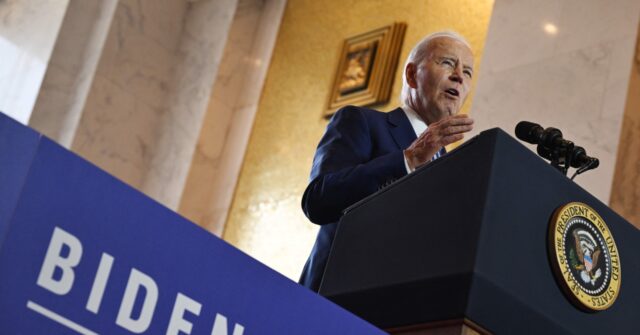A recent Gallup poll indicates that a significant number of Americans (52 percent) believe they are worse off now than they were four years ago, during former President Donald Trump’s administration. This shift in sentiment correlates with the tumultuous period marked by the coronavirus pandemic, which deeply affected both the economy and the daily lives of many citizens. Despite the struggles experienced during the pandemic, there appears to be a prevailing belief among Americans that conditions were better then. This reflects a broader trend where historical data often links individual feelings of prosperity with the state of the economy, as captured in Gallup’s Economic Confidence Index (ECI).
Under the current administration led by President Biden and Vice President Harris, costs have reportedly surged by an average of 20 percent, a component of what has been termed “Bidenomics.” Various global events have further complicated the economic landscape, including Russia’s invasion of Ukraine, hostilities from Hamas and Iran against Israel, an influx of illegal migrants at the southern border, and the significant controversies surrounding the military withdrawal from Afghanistan. These factors have contributed to a sense of economic instability and insecurity among the populace.
Gallup’s findings reveal a stark sentiment regarding the economy, with the ECI standing at -26, representing one of the lowest figures recorded during an election year. The poll, conducted between October 1 and 12, highlights that 46 percent of Americans perceive economic conditions under the Biden administration as “poor,” while an additional 29 percent consider them “only fair.” Alarmingly, 62 percent of participants expressed the belief that the economy is “getting worse,” a viewpoint that underscores the pervasive dissatisfaction felt by many.
The implications of the survey data are significant, particularly in light of upcoming elections, where economic confidence will likely emerge as a pivotal issue. Historical patterns have demonstrated that voters’ perceptions of their personal economic situation can heavily influence election outcomes. With a growing majority indicating they feel worse off than four years ago, and a general pessimism persisting about economic recovery and job prospects, the focus of the electorate will center on candidates’ abilities to effectively address these concerns.
Central to this discourse is the enduring question, “Are you better off than you were four years ago?” This question gained prominence during the 1980 presidential debate between Ronald Reagan and Jimmy Carter and remains a critical touchstone in political discussions today. As candidates vie for public support, their responses to this inquiry—and the policies they propose to improve economic conditions—are likely to be pivotal in swaying voters.
Wendell Husebo, a political reporter with Breitbart News and a former analyst for the Republican National Committee, underscores the significance of these polling insights as the political landscape evolves. He emphasizes that addressing economic concerns will not only be vital for candidates as election day approaches but will also shape the broader narrative of the future of America’s economic policies and their impact on everyday citizens.

